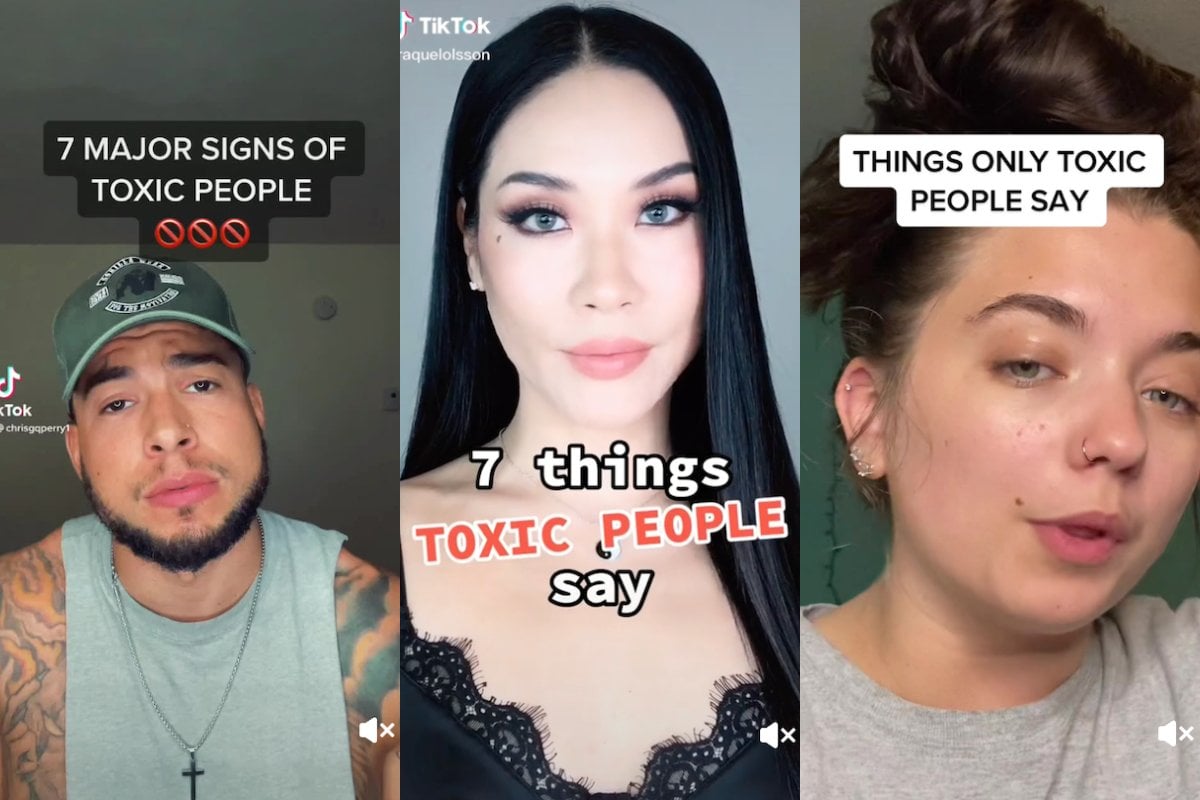
Just like the phrases 'problematic', 'do better' and 'cancel culture', another term has burrowed its way into the zeitgeist. And it's the word 'toxic'.
In today's world, many things can be considered toxic – a workplace, an idea, a relationship (platonic or romantic), a situation and now even a person.
When you scroll through TikTok, you will see thousands upon thousands of Gen Z and Millennial users sharing their 'toxic' experiences. Many suggest their friends are toxic. Others hint that films and lyrics to old songs are toxic. And many spurt advice on how to cut out – once and for all – the toxic influences in your life.
But have we begun to rely on this word too much? And is it time to unpack the complexities behind it?
This week on Mamamia Out Loud, the hosts shared their thoughts about the term in relation to a new article in The Atlantic titled 'That's It. You're Dead to Me. Suddenly everyone is toxic.'
Because while the word 'toxic' has helped a lot of people – particularly women – find the vocabulary to articulate what they have experienced, some wonder whether the pendulum has swung too far.

Top Comments